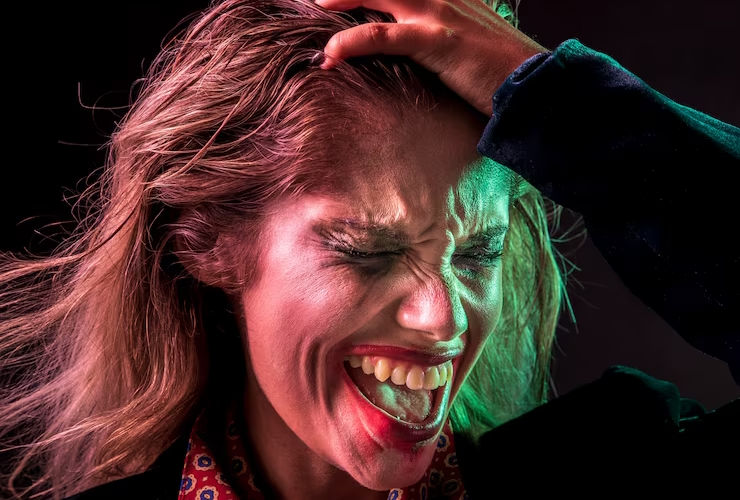Introduction to Dark Humor
Dark humor often walks a fine line between hilarity and discomfort. It’s that cheeky little voice in our heads that whispers jokes about the taboo, poking fun at life’s darker corners. While some might shy away from these punchlines, others find themselves irresistibly drawn to them. Why? Because laughter can be a powerful tool for coping, reflecting, and sometimes even challenging societal norms.
In this blog post, we’ll dive into the fascinating world of dark humor jokes—exploring what makes them tick and why they resonate with so many people. Prepare yourself for a blend of laughs and introspection as we navigate through the psychology behind dark humor, its controversies, benefits, and tips on how to wield it wisely without crossing any lines.
The Psychology Behind Dark Humor
Dark humor often walks a fine line between amusement and discomfort. It allows individuals to confront life’s harsh realities with laughter. This paradox can be both liberating and unsettling.
From a psychological perspective, dark humor serves as a coping mechanism. When faced with taboo subjects or distressing situations, joking about them reduces anxiety. People can explore their fears while feeling empowered through laughter.
Moreover, it fosters connection among those who share similar values or experiences. A well-timed joke can create camaraderie in the face of adversity.
However, not everyone appreciates this style of humor equally. Cultural differences play a significant role in how dark jokes are perceived, leading to varied reactions across audiences. While some might find relief in shared darkness, others may feel offended or alienated by such expressions.
Controversy and Criticism of Dark Humor
Dark humor often walks a fine line. It can provoke laughter or outrage, depending on the audience. Many people appreciate this genre for its boldness and complexity.
Critics argue that dark jokes can perpetuate harmful stereotypes or trivialize serious issues. This perspective highlights how sensitive topics require careful handling. The risk of offending someone is always present.
Moreover, not everyone has the same threshold for what’s acceptable. Cultural backgrounds and personal experiences shape our reactions to certain jokes. A comment that seems funny to one might feel deeply hurtful to another.
Some believe dark humor serves as a coping mechanism, allowing individuals to confront their fears through laughter. Yet, others question whether it truly helps or merely desensitizes us further from real-life tragedies.
Navigating these waters requires awareness and empathy—qualities essential in understanding both humor and humanity’s complexities.
The Benefits of Laughing at Taboo Topics
Laughing at taboo topics can feel exhilarating. It allows us to confront uncomfortable realities with humor, creating a safe space for discussion.
This laughter acts as a release valve, easing tension around subjects typically shunned in polite conversation. By joking about dark themes, we acknowledge their existence without being overwhelmed by them.
Moreover, it fosters connection among those who share the same sense of humor. Finding common ground in shared laughter can strengthen bonds and promote understanding.
Additionally, engaging with these sensitive topics through comedy encourages critical thinking. It prompts us to question societal norms and challenges the status quo.
In this way, dark humor becomes not just entertainment but also a catalyst for meaningful dialogue and personal reflection on complex issues.
Examples of Dark Humor Jokes
Dark humor often treads the line between laughter and discomfort. Here are a few examples that illustrate its unique charm.
Why don’t graveyards have Wi-Fi? Because people are dying to get in!
Another classic: I have a joke about trickle-down economics, but 99% of you will never get it.
Or how about this one: My therapist says time heals all wounds. So why is my ex still bleeding?
These jokes highlight the absurdity of life’s darker moments. They prompt us to confront uncomfortable truths while inviting laughter into serious topics.
Remember, it’s not just about shock value. The best dark humor makes you think as much as it makes you laugh, offering an unexpected twist on reality’s harsher aspects.
How to Use Dark Humor Appropriately
Dark humor can be a tricky territory. Timing is everything. Choose the right moment and audience to share your jokes.
Know your crowd well. Familiarity with their comfort levels is crucial. Not everyone will appreciate dark humor, so gauge reactions before diving deep into edgy topics.
Context matters significantly. Make sure the situation allows for some levity without crossing lines that could hurt feelings or offend sensibilities.
Be mindful of cultural differences. What might be funny in one culture can easily fall flat or even upset another group entirely.
Don’t force it. If laughter isn’t flowing naturally, it’s better to step back rather than push through awkwardness. Embrace lighthearted moments instead; they often lead to genuine connection without the risk of discomfort associated with dark humor.
Conclusion: Embracing the Complexity of Dark Humor
Dark humor occupies a unique space in comedy and human expression. It challenges societal norms, pushes boundaries, and invites us to confront uncomfortable truths. While it can stir controversy, the allure of dark humor lies in its ability to make us think critically.
Engaging with these jokes allows for a cathartic release of tension surrounding taboo subjects. This form of humor offers perspective—showing that even life’s darkest moments can be approached with laughter. However, embracing dark humor requires sensitivity and an understanding of context.
Not everyone appreciates this style or finds it funny. That’s part of what makes navigating the world of dark humor so complex. A well-timed joke can foster connection among like-minded individuals while also alienating others who may find it offensive.
It’s about balance—a recognition that while we might laugh at life’s absurdities, there is depth beneath those laughs worth exploring. Dark humor isn’t simply about making light; it’s about engaging thoughtfully with the darker aspects of our existence and finding common ground through shared experiences—even if they come wrapped in irony or wit.




